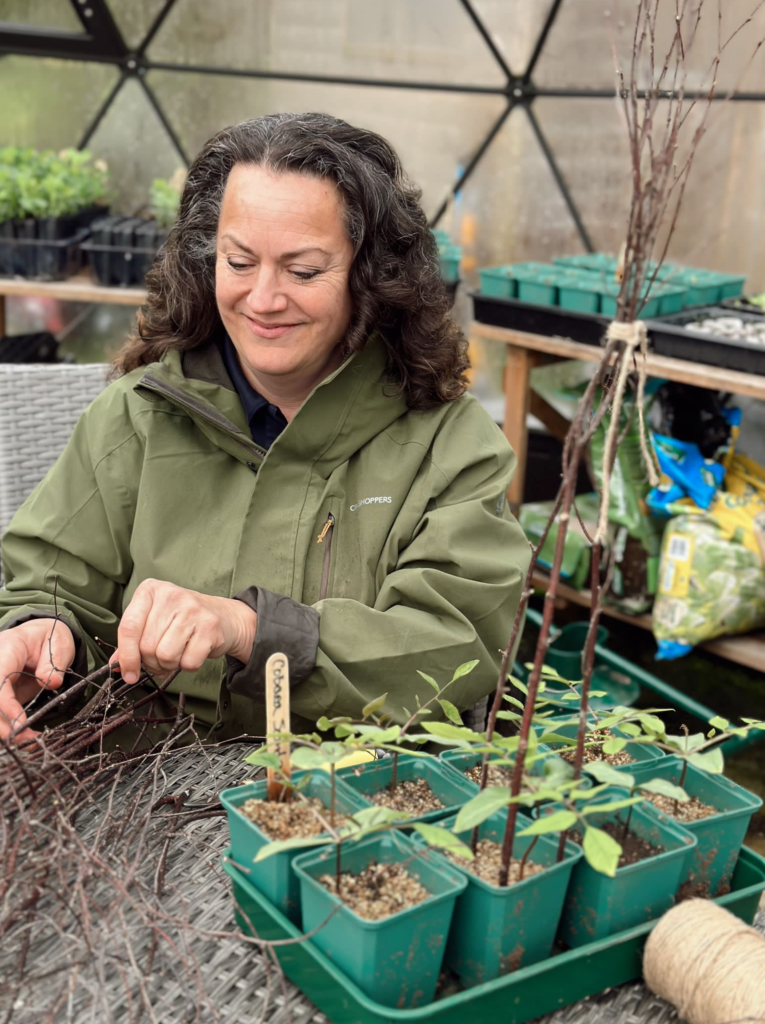I often think that everything important that I know, I learned from my garden.
It has certainly taught me patience – and discipline – and a certain toughness of spirit. A willingness to try things and get them very wrong – and get back up and try again.
And it’s given me a certain resilient optimism. After a pretty grim February, weather-wise, I was so encouraged to see tiny crocuses like Cadbury wrappers, and the smallest possible daffs, sticking their intrepid heads up out of the long bed in the Magic Garden…

I haven’t been out much over January and February, I must admit! My “winter interest” seems to involve curling up in front of the fire and drooling over seed catalogues for spring. But one job that I have been attending to is pruning the roses and mulching them with the gorgeous rotted manure that comes from the goat sheds, onto the compost heap and then onto my borders.
Weird to think of “well-rotted” manure as gorgeous, I know. But as a former city girl who used to pay any amount of money for animal compost in a bag, I revel in the riches of having unlimited amounts of aged manure at my disposal, and a man with a tractor to shift it. Fabulous!
And there’s a solid reason for this enthusiasm. Dressing your beds with aged manured compost in the garden is in my opinion, the single most important thing you can do for your plants. Feed the soil they say, not the plants.
It was following this advice – and watching my roses go ballistic afterwards – that really taught me about prebiotics.

Prebiotics feed the good bugs inside your gut, just as mulching with compost feeds the soil structure. Both things nurture the life inside the ecosystem, super-charging the marvellous, invisible diverse kingdom of living bacteria that exists just under the surface.
In the garden, the results of this enrichment are stunning, healthy flowers and fruit and veg bursting with goodness. In your body, you can see the results with shiny hair, smooth skin, silky joints and bounding energy. But the process is the same.
Kefir is great – as it puts the good bugs back into your system. But kefir alone is not enough, just as planting flowers alone is not enough. You’ve got to feed those flowers – with compost – and you’ve got to feed the probiotics in your gut, with prebiotics.
And then everything blooms!
Wishing you signs of spring –
Shann.x
Check out Probiotics vs Prebiotics: what’s the difference? and try Laura’s Spring prebiotic potato salad!
Feel free to get in touch with our Nutritional Therapists via live chat, 8 am to 8 pm on weekdays, to have your questions answered!















